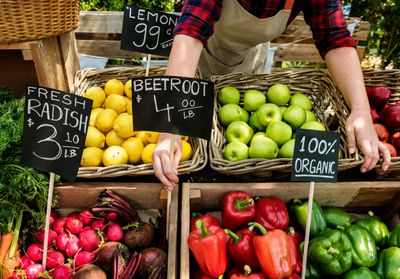Organic Plants Vs. Non-Organic Plants
From the day organic marketing began, there’s been a fierce debate about its advantages, with religiously held opinions on either side. This article is not meant to prove or disprove either argument – its purpose is simply to lay out some of the facts to help readers make their own decision. Ultimately, whether you choose to buy, grow, and eat organically is entirely up to you.
What’s the Difference between Organic and Non-Organic?
Organic has a slightly different definition when it’s applied to different things. For seeds and plants, it means they have been grown without synthetic fertilizers, genetic engineering, irradiation, or pesticides. Organic produce comes from these plants, and organic meats come from animals that have only eaten these plants and have not been treated with drugs such as antibiotics.
Benefits of Organic Vs. Non-Organic
Is organic better? Conventional wisdom says yes, but research is a little more inconclusive. Several recent studies have shown that organic food is not noticeably more nutritious or better tasting than non-organic alternatives. Organically grown produce is shown to have 30% less pesticide residue than non-organic, but both fall within legally allowable limits. One of the strongest arguments for organic plants is environmental impact, as organic growing practices lead to less chemical and pharmaceutical runoff. Also, organic farms and gardens tend to be smaller and use more environmentally stable methods, such as rotation and cover crops. In the end, it’s up to you to decide whether growing, buying, and eating organic is a good fit.
